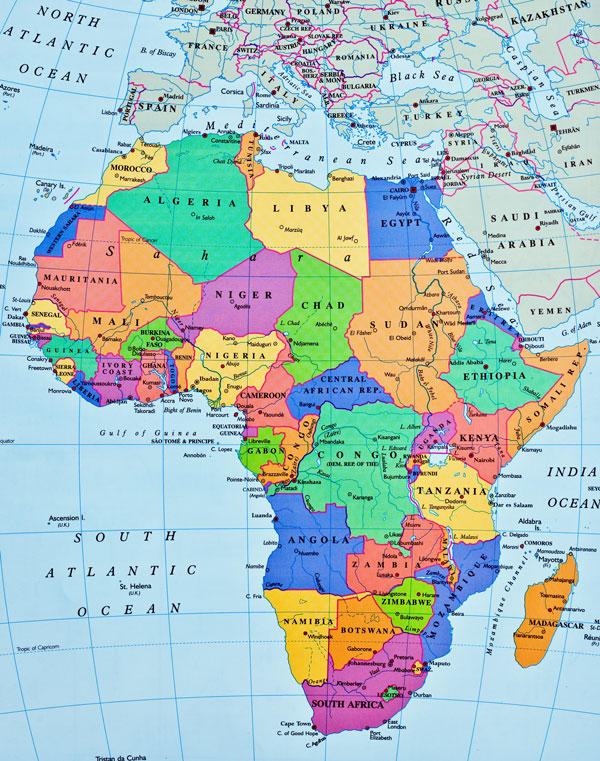Al Qaida is making the most of the situation in Libya, according to reports by an Algerian security official. Weapons from Libya have been smuggled toward Al Qaida destinations in western Africa, and governments in the region are concerned that Al Qaida’s forces could step into the void left if Libyan leader Muammar Gaddafi is forced to step down.
The Libyan conflict has allegedly given Al Qaida a convenient means to acquire a variety of weapons, from shoulder-fired surface-to-air missiles to Russian-made anti-tank rocket-propelled grenades.
The bombing of Libya, meant to protect civilians, has left some of Gaddafi’s arms dumps vulnerable to terrorist groups. An Algerian official speaking anonymously told Reuters that a convoy of trucks has reached the western Africa country of Mali on their way to the hands of Al Qaida operatives, which hope to increase their control along Africa’s northern coast.
A convoy of eight Toyotas full of weapons travelled a few days ago through Chad and Niger and reached northern Mali. We know that this is not the first convoy and that it is still ongoing. Several military barracks have been pillaged in this region [eastern Libya] with their arsenals and weapons stores and the elements of AQIM who were present could not have failed to profit from this opportunity.
 Algeria has worked constantly to keep down Islamist terrorist organizations during the past two decades and its security forces have kept a close watch on Al Qaida activities.
Algeria has worked constantly to keep down Islamist terrorist organizations during the past two decades and its security forces have kept a close watch on Al Qaida activities.
Anti-tank rocket-propelled grenades, Kalashnikov machine guns and rifles, explosives, and ammunition were reportedly piled on the trucks in the convoy.
For his part, Gaddafi has declared that the West is making a mistake with its bombing campaign; it is interfering with his effort to fight Al Qaida.
U.S. State Department spokesman Mark Toner confirmed that the United States had been talking with Gaddafi’s opposition in Libya regarding the Al Qaida threat, saying, “We are aware of these reports too, and it has been one of the topics of our conversation with ... the opposition forces.”
Western leaders join the concern of leaders in northern Africa that if Gaddafi steps down in Libya, Al Qaida will be ready to step into the power vacuum left behind.
The West is not alone in its desire to keep Al Qaida from gaining power. The nations in the Middle East also have a vested interest in holding down the terrorist organization. Case in point: In Baghdad, the following incidents, attributed to Al Qaida, occurred on the same day:
- Gunmen stormed a house in the village of Zumbraniya, 25 miles from Baghdad, killing six men and wounding three women in one family.
- Bombs went off at the homes of three separate officials in Baghdad. A bomb killed one of the body-guards of Razzaq Marzouq, a director general at Iraq’s Industrial Ministry. Three of his other bodyguards were wounded in the explosion. The director general of the government-owned Iraqi Investments Board, Bahser Muhssan, and a bystander were wounded in an explosion at his home in southern Baghdad. Abed Majwal, a member of a consortium of counter-terrorist paramilitary groups, was killed in the explosion outside his house in western Baghdad.
- And in western Baghdad, a bomb exploded out-side the home of Abed Majwal, killing him instantly as he left his house.
- Finally, gunmen killed an Iraqi police officer at a checkpoint in southwestern Baghdad.
Notes:
The Daily Telegraph
http://www.telegraph.co.uk/news/worldnews/africaandindianocean/libya/8427540/Libya-al-Qaeda-receive-looted-Libyan-weapons.html
Fox News
http://www.foxnews.com/rld/2011/04/04/report-algerian-security-official-says-al-qaeda-using-libyan-conflict-acquire/print
Reuters
http://www.latimes.com/sns-rt-libya-usaweapons-n04155762-0,1072630,print.story
CNN
http://edition.cnn.com/2011/WORLD/meast/04/04/iraq.violence/





